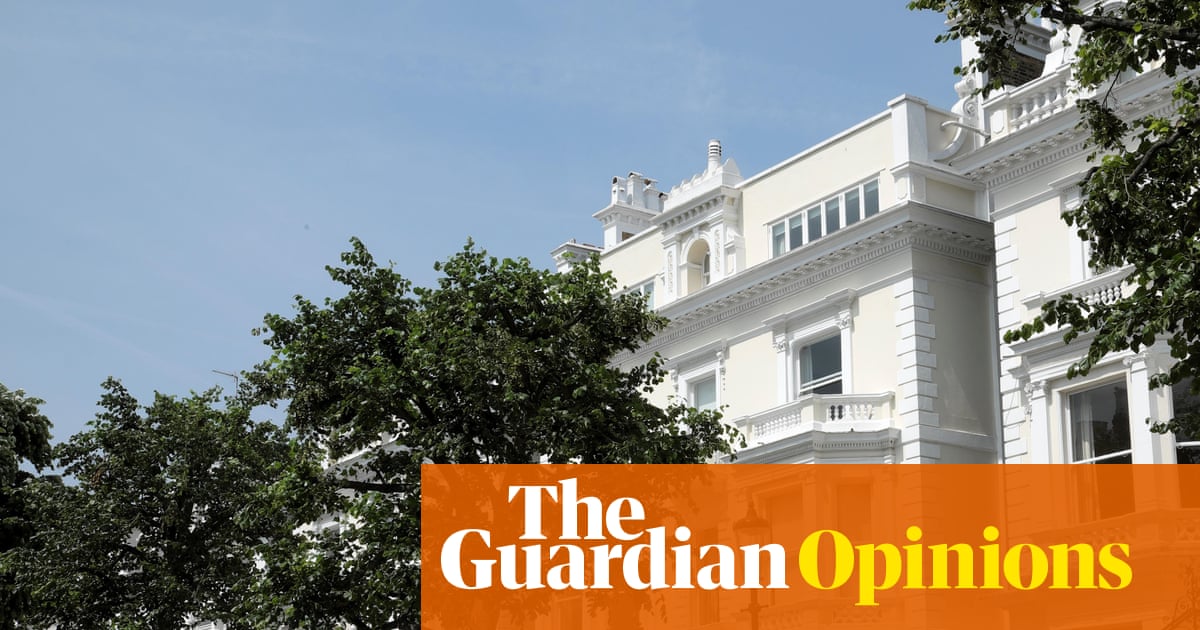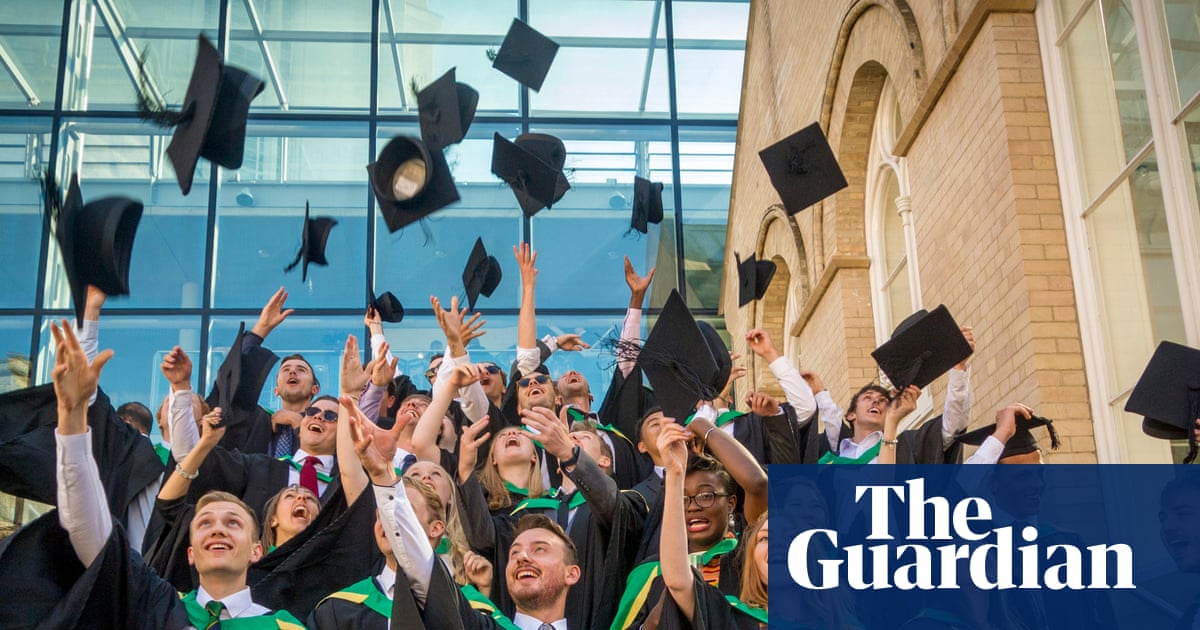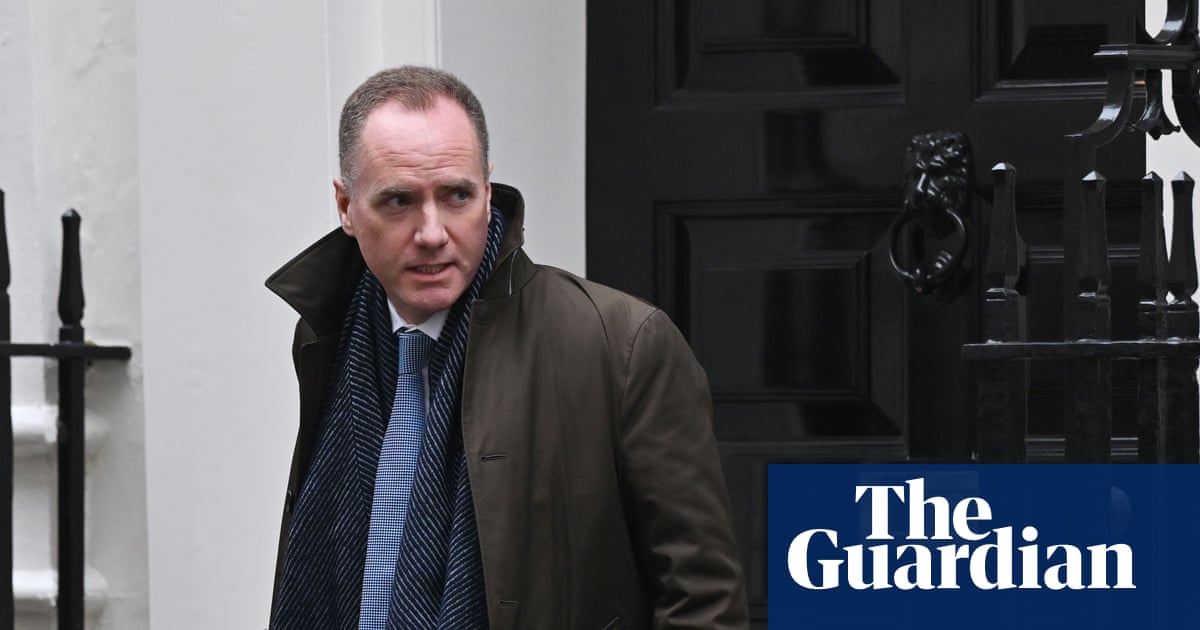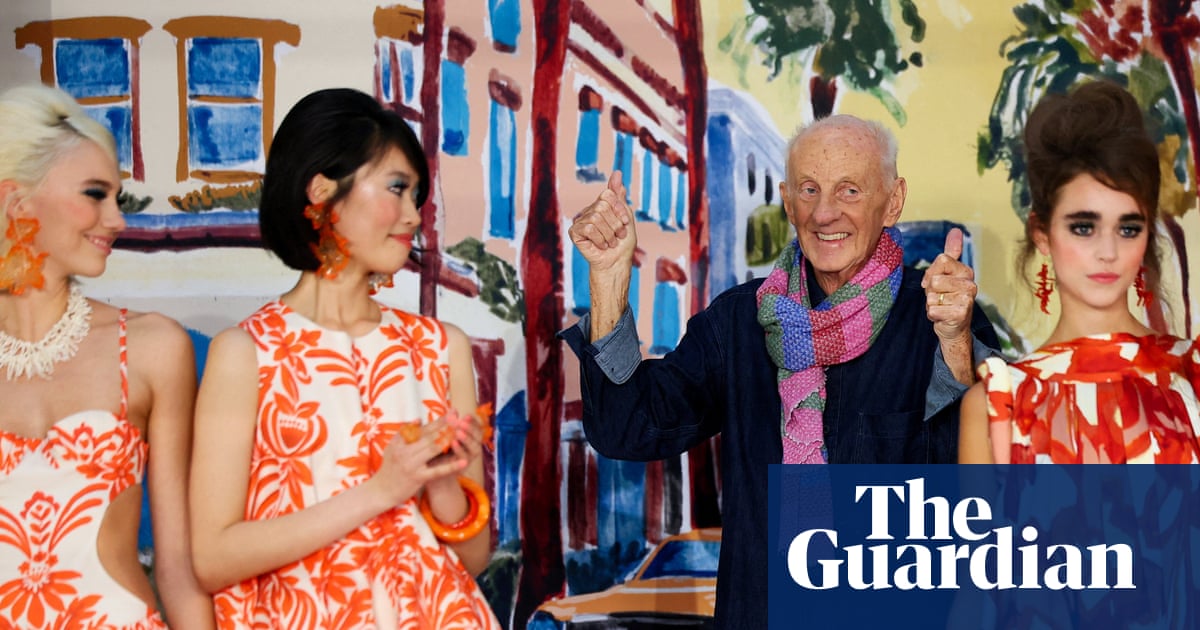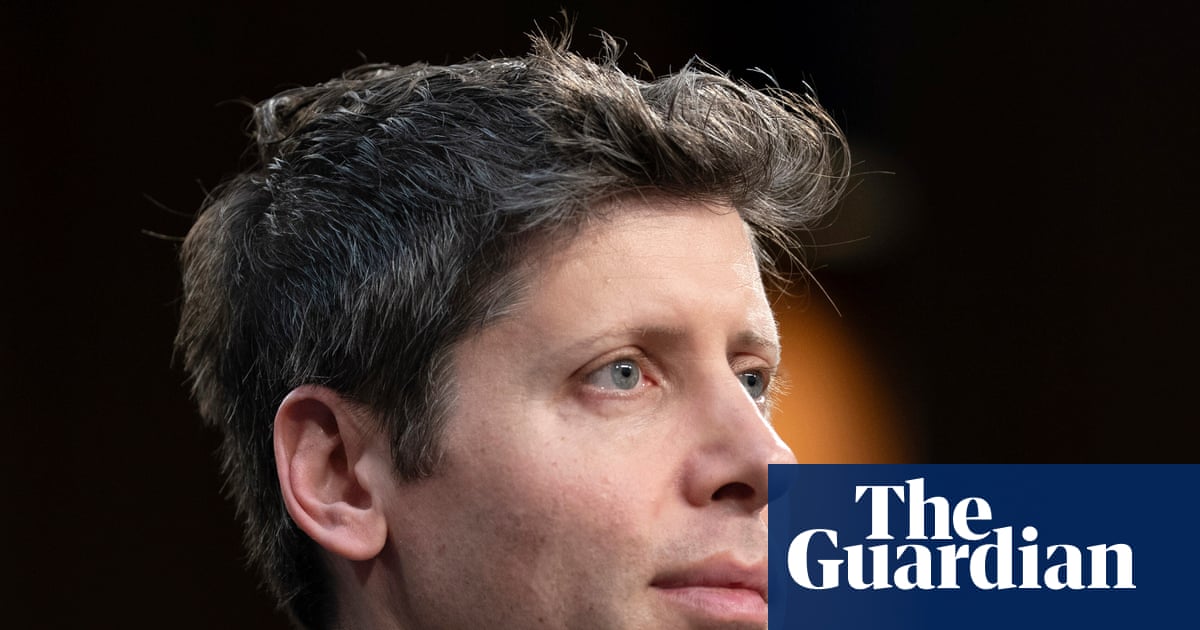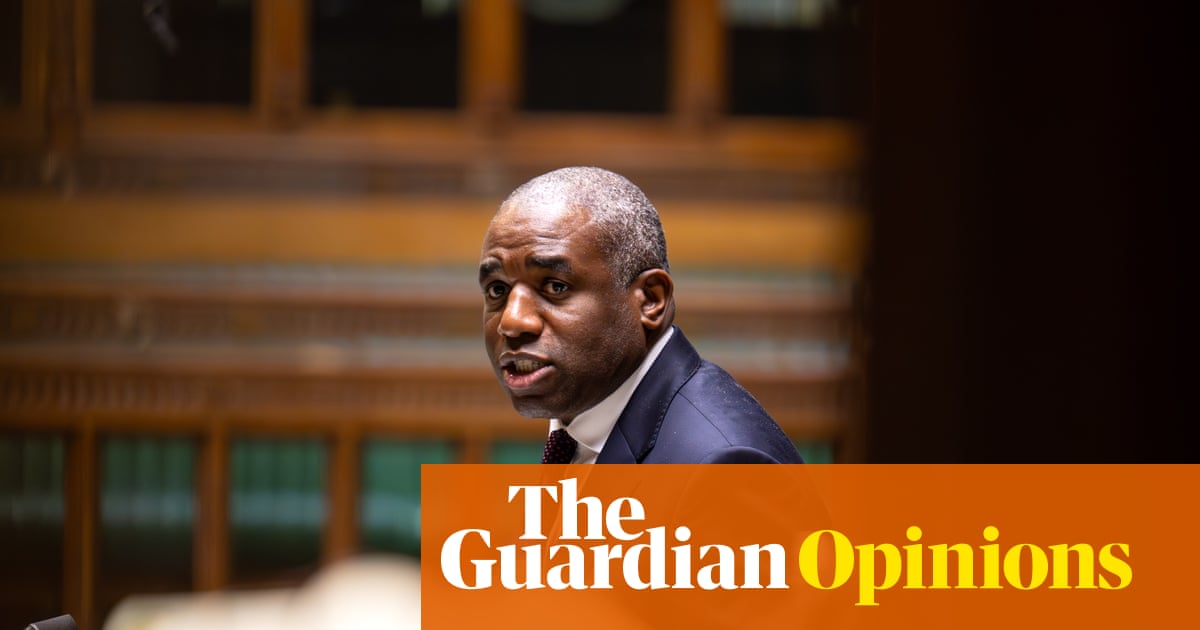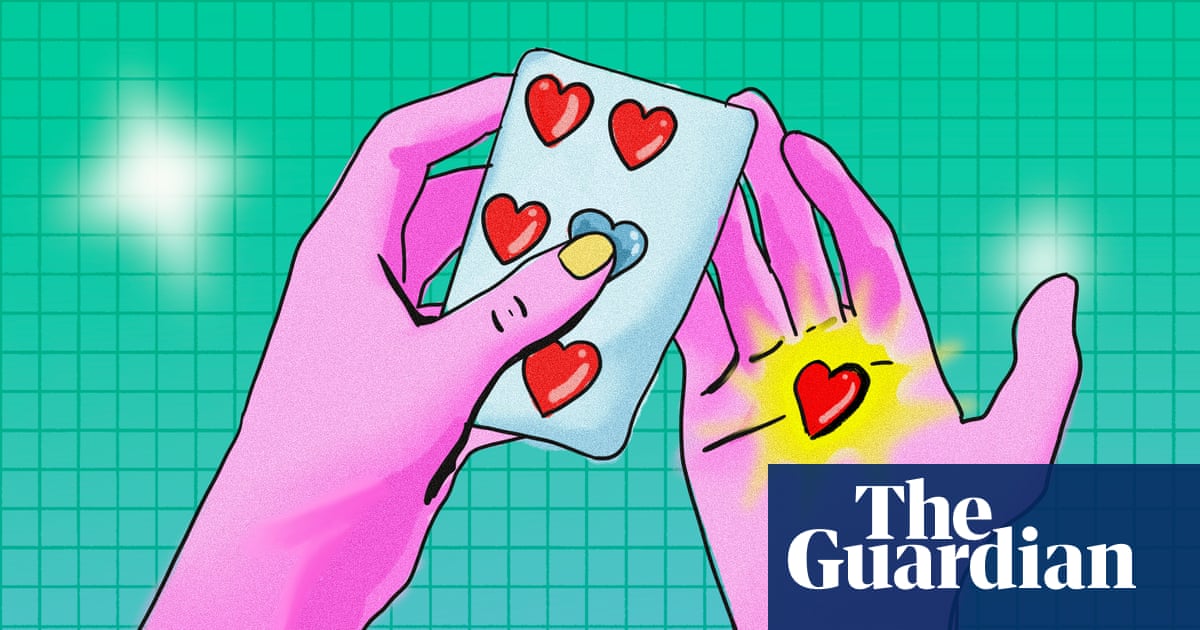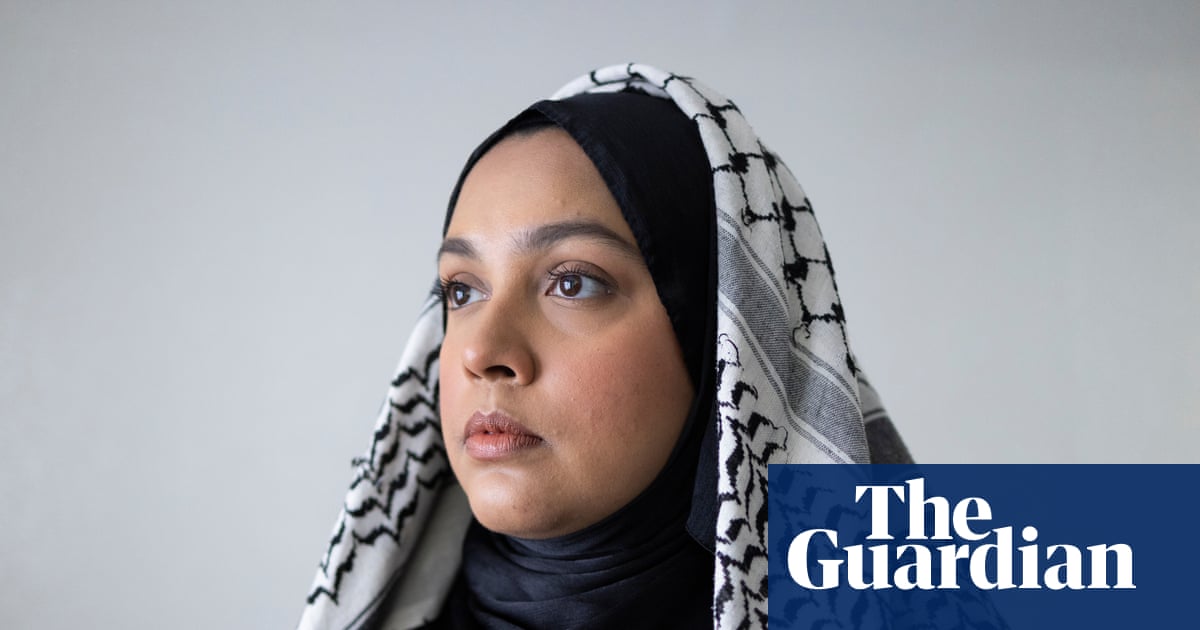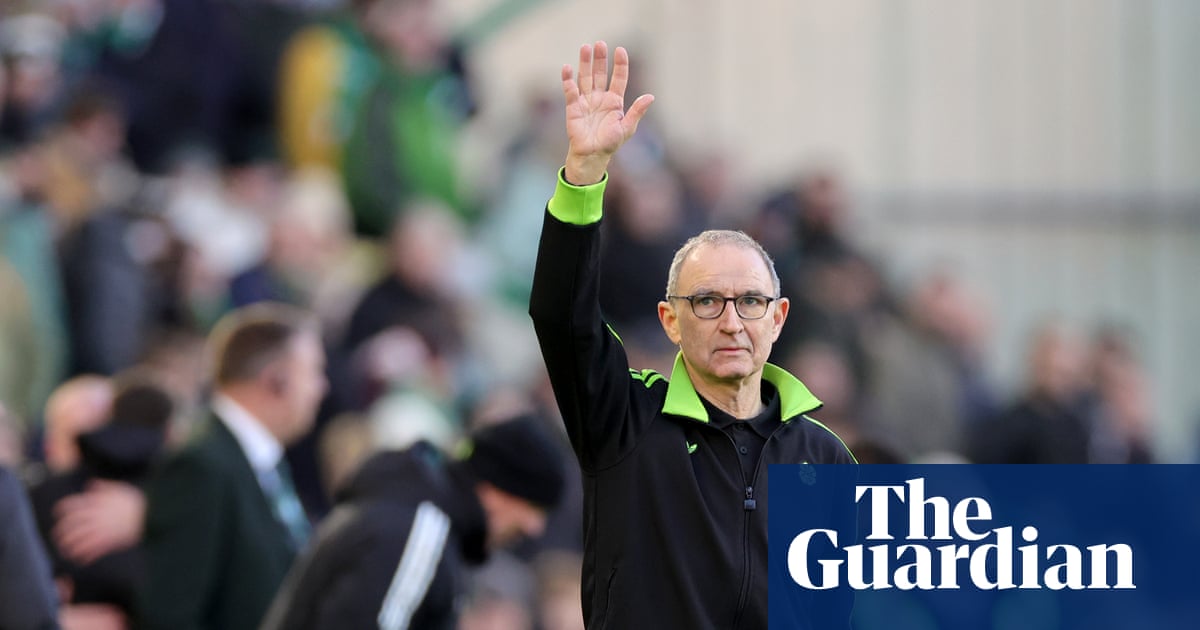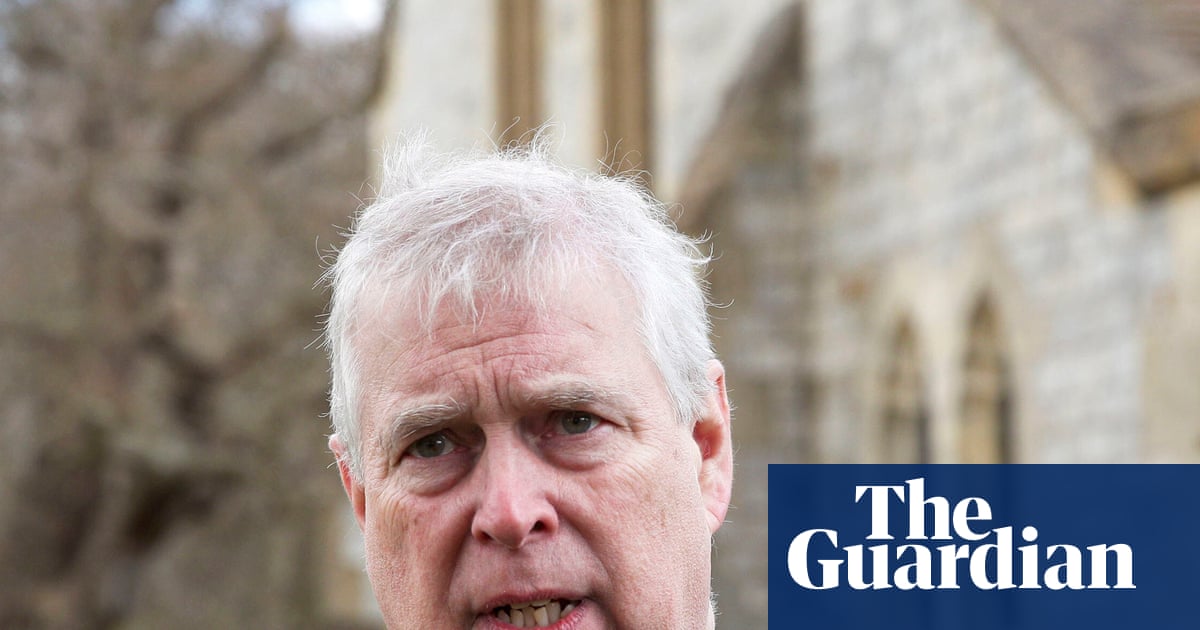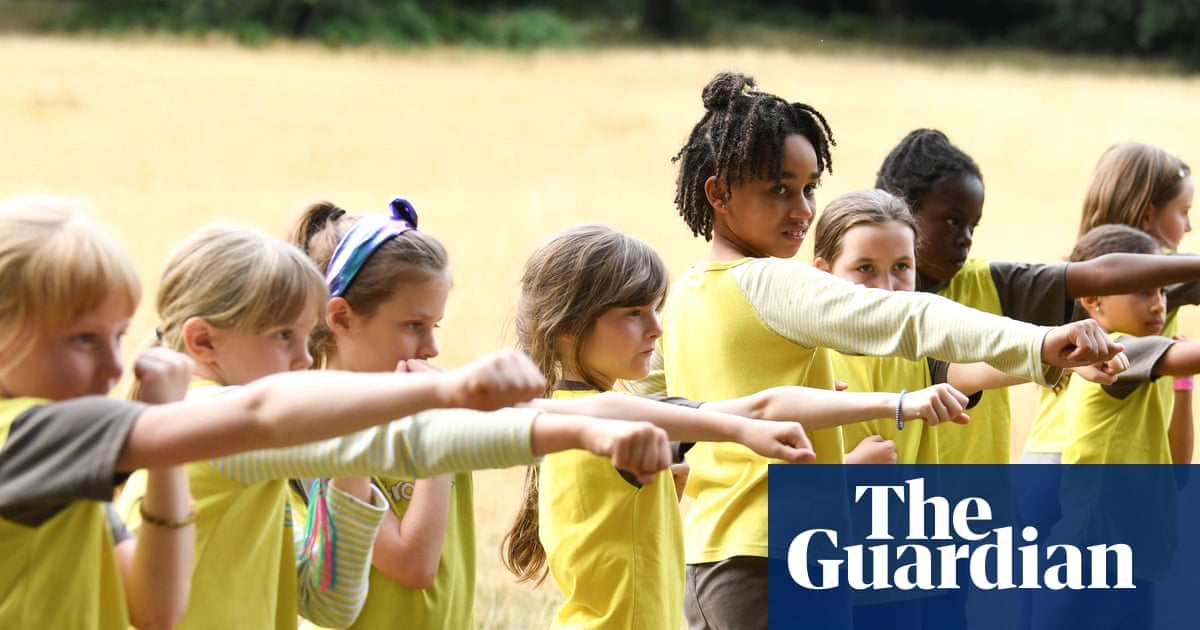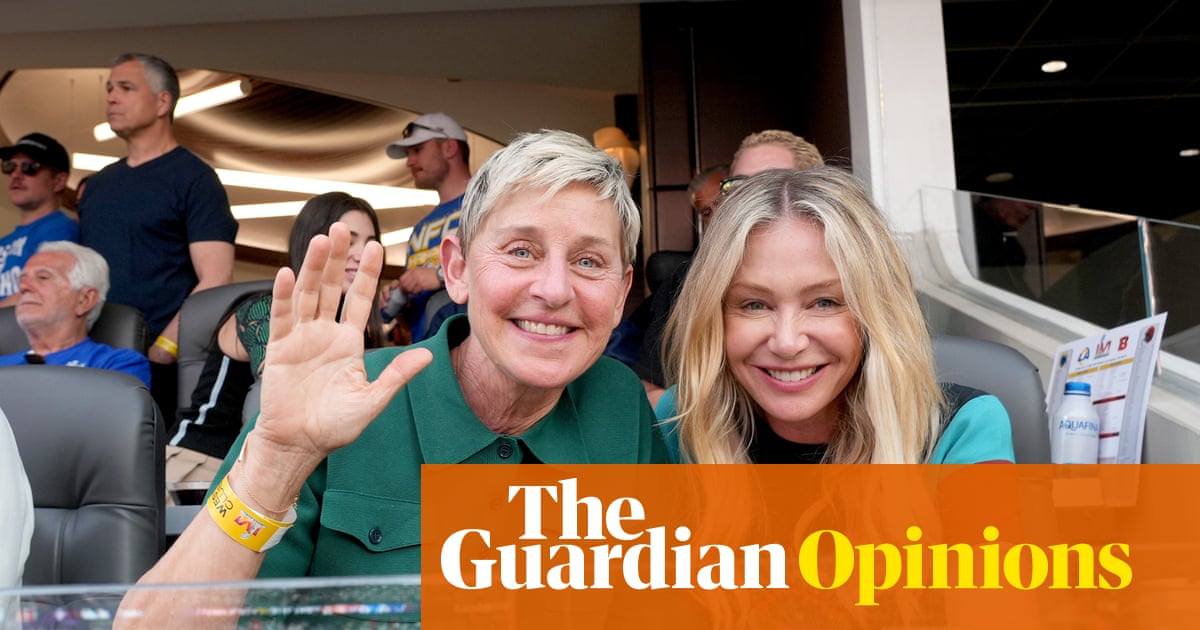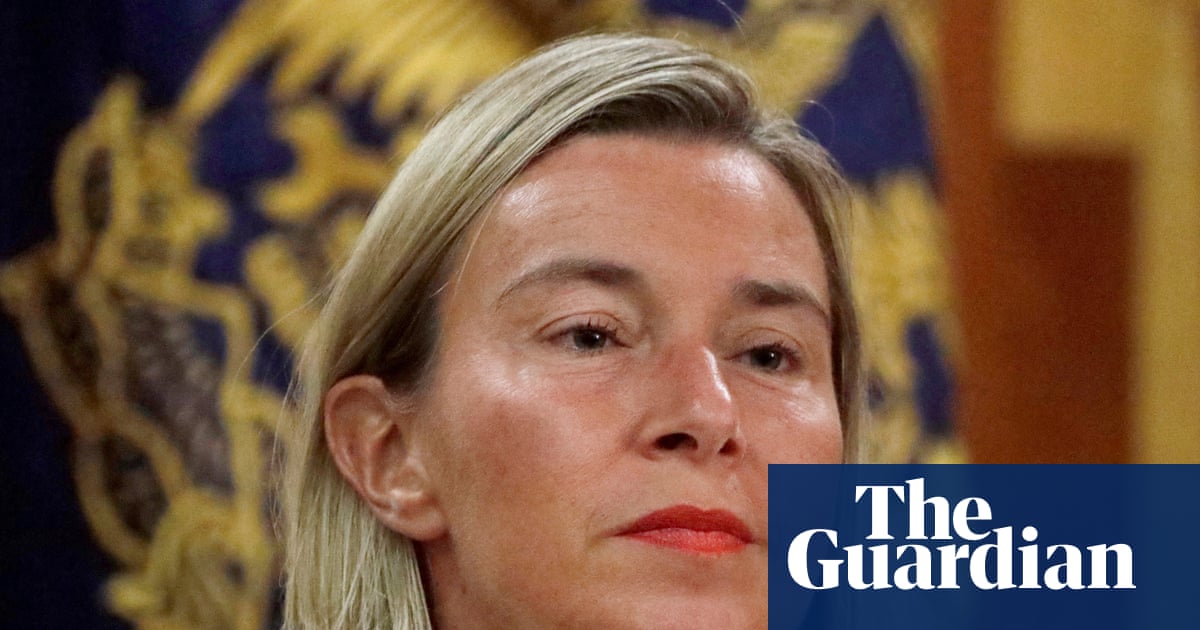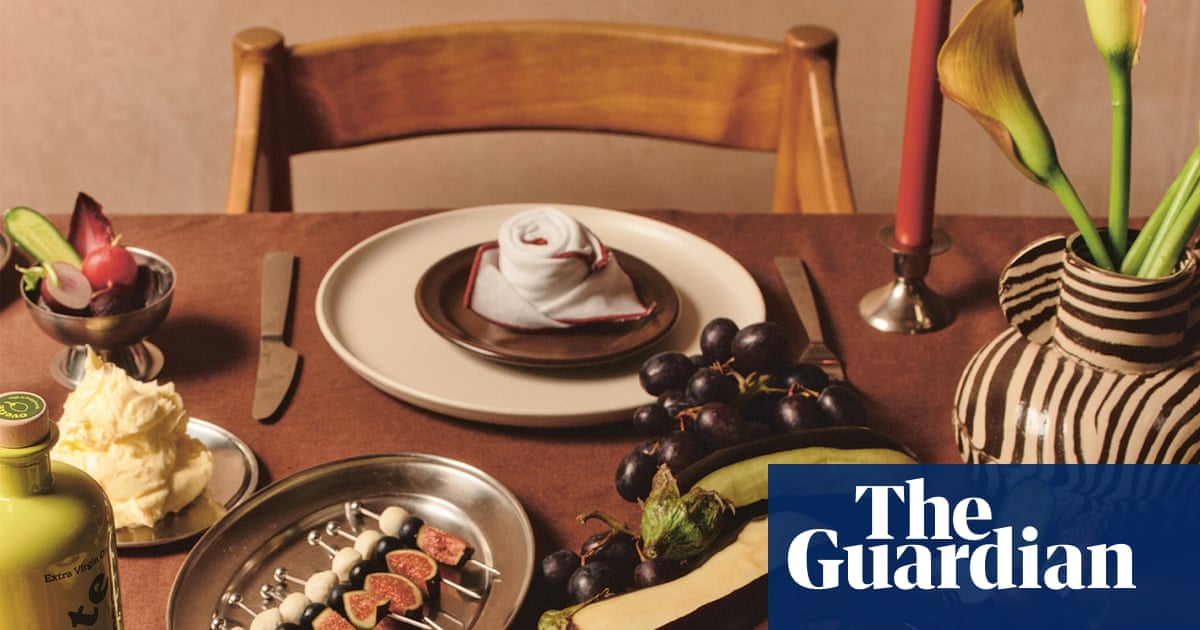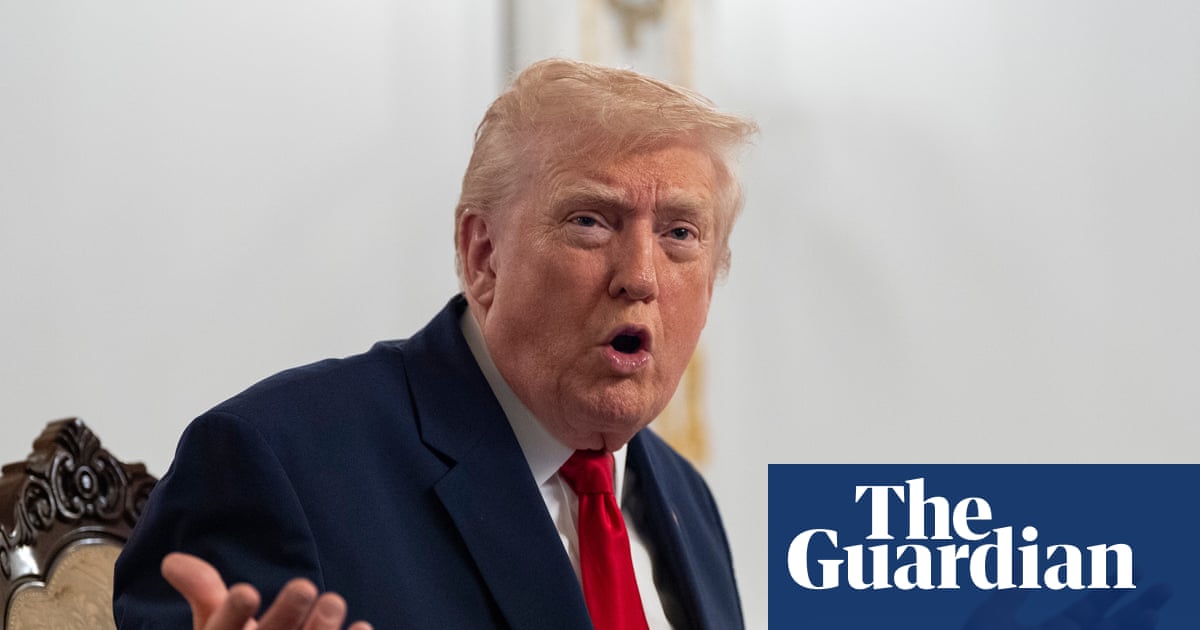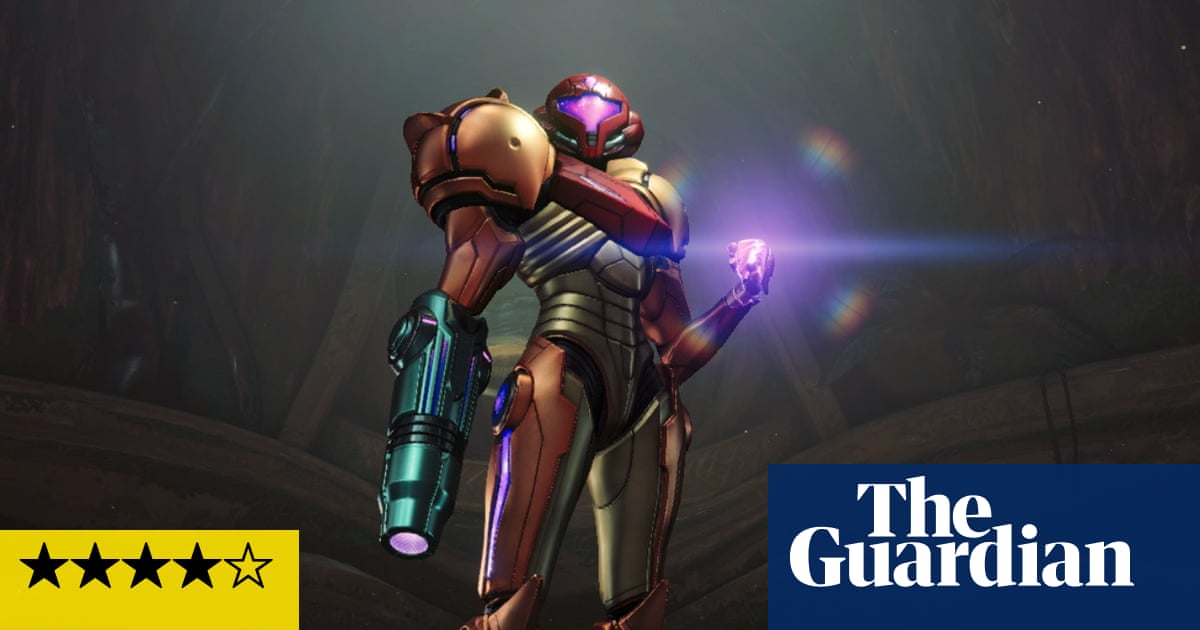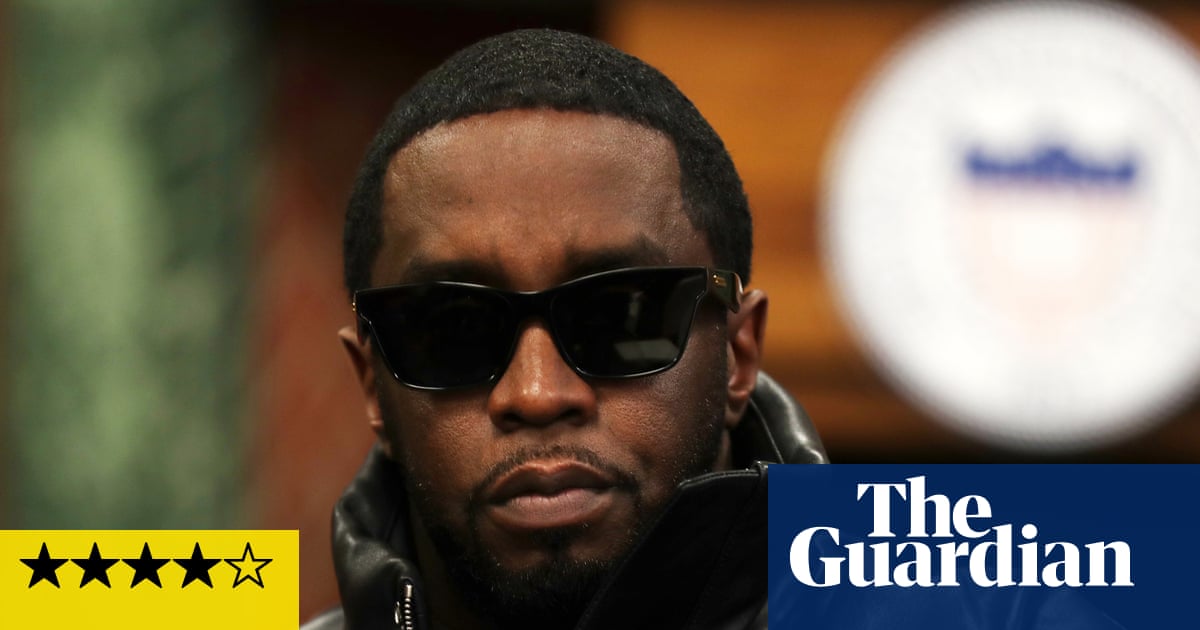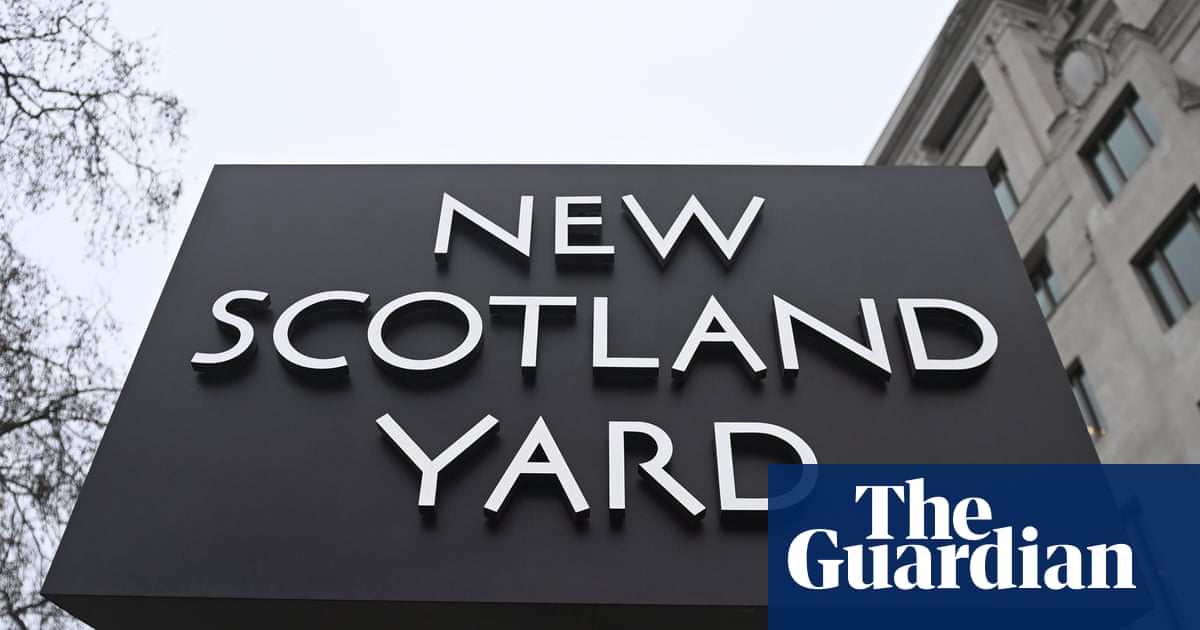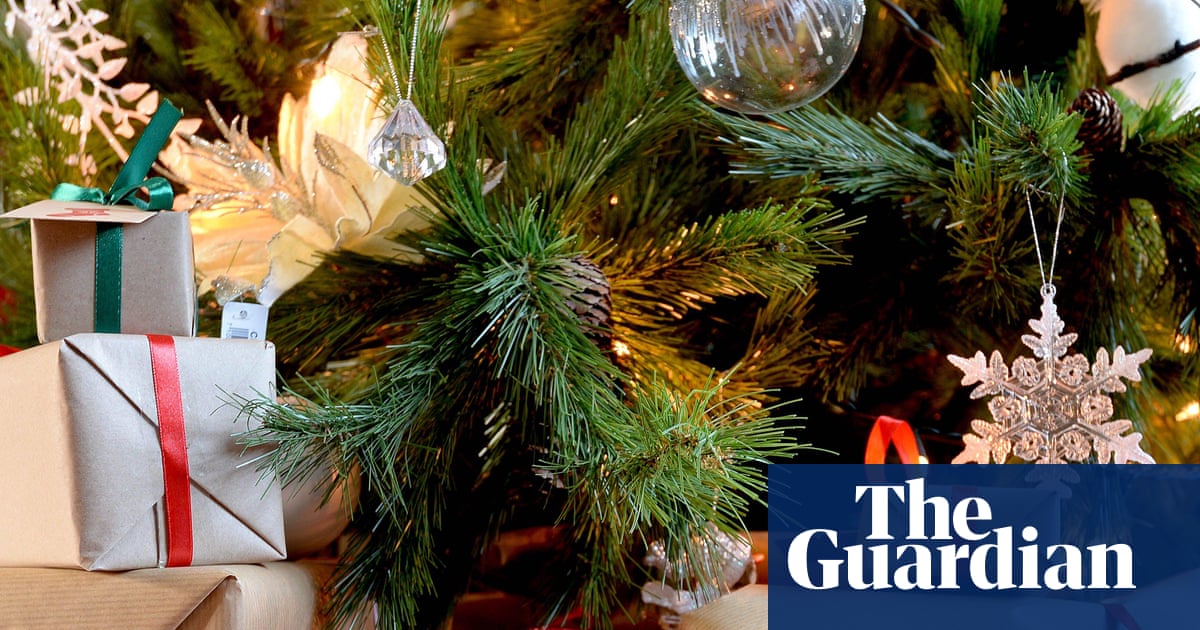Anti-immigration protesters have clashed with anti-racist counter-protesters in tense scenes in Glasgow this afternoon, a week after the largest far-right event in decades, organised by the activist Stephen Yaxley-Lennon, known as Tommy Robinson, took place in London.
The statue of Scottish statesman Donald Dewar, father of the Holyrood parliament, which stands at the top of Buchanan Street, one of the city’s main shopping streets, was surrounded by union flags bearing the words: ‘Stop the boats’, and ‘Unite the kingdom’.
Hundreds of people waving placards reading ‘The people will not be silenced’ and ‘Just a worried mum’ gathered at the steps leading up to Glasgow Royal Concert Hall for the ‘unity rally’, which was first advertised by a podcaster called John Watt.
A number of other groups, including Save our Futures and Our Kids’ Futures, which has been coordinating protests against an asylum hotel in Falkirk, encouraged their supporters to attend after Watt announced on social media that he was pulling out ‘due to unforeseen circumstances’. Last week, the Daily Record revealed that Watt had been convicted of abusing two former girlfriends in 2018.
There was a significant police presence and febrile atmosphere with the ‘unity’ protesters blocked in at the top of Buchanan Street, while counter-protesters amassed further down the pedestrian thoroughfare. Speeches to the anti-immigration protest were largely drowned out by chants of “shame on you” and heavy beats from the anti-racists’ superior sound system, which blasted out sing-a-long hits by Abba and Chappell Roan.
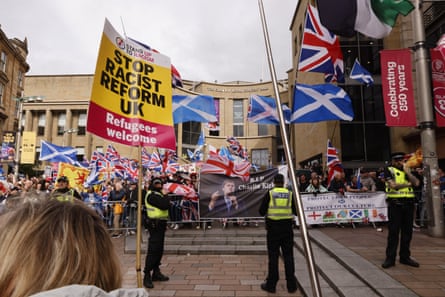
Representatives from trade unions as well as anti-racism and Palestinian solidarity groups carried signs and banners reading ‘Bairns not bigots’, ‘Aye welcome refugees’ and ‘God hates fascists’.
Standing by the steps leading up to the concert hall, three women held aloft a banner bearing a colourful portrait of the far-right Christian activist Charlie Kirk, who was assassinated two weeks ago in Utah. They praised Kirk, saying “he wasn’t scared to say what other people are afraid to say” and bemoaned lack of Christian teaching in modern Scottish schools while “too many other religions are being brought in”.
One of the women, Laura Dunsmore, a nurse, said it was important to emphasise that the protest wasn’t only about illegal immigration. “It’s about the state of the country, the state of the world. You can’t access healthcare, our streets are crumbling. We can’t vote our way out of this. We need change at a higher level.”
Further down the wide street, holding a handmade placard reading “This mum welcomes refugees”, Cat, a software technician from Glasgow’s southside, was jigging to pop hits along with her partner and baby. “I felt I should lean in to the ‘mum’ bit especially because they are saying they want to protect women and children, and as a woman and a mum I’m not worried about asylum seekers. I’m far more worried about those guys over there”.
She said it was important to come to the counter-protest to show solidarity in particular after the scenes in London last weekend.
after newsletter promotion
As groups at the edge of the protest began pushing and shoving, police moved quickly to separate the two groups, closing off access routes for Saturday shoppers and tourists who expressed alarm or irritation at the disruption.
Areas of Glasgow have been draped in Saltires in recent weeks, in a direct parallel with the Operation Raise the Colours movement, which has co-opted the St George’s cross in England, with ownership of the blue and white cross of St Andrew becoming a new cultural and political battleground in Scotland.
Last summer, Scotland escaped the racist violence that spread across England and Northern Ireland after the horrific Southport killings last July. But a year later, the landscape is very different, with recent polling for More in Common suggesting that Reform was neck and neck with Scottish Labour in voting intention for next May’s Scottish parliament election. Immigration appears to be a top concern for Scottish voters for the first time and the Scottish government is facing a refugee housing crisis in Glasgow, Scotland’s largest city.

.png) 2 months ago
43
2 months ago
43
